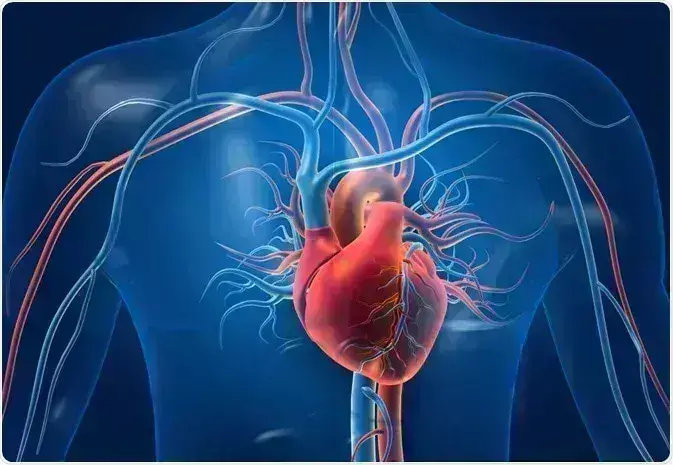- Home
- Medical news & Guidelines
- Anesthesiology
- Cardiology and CTVS
- Critical Care
- Dentistry
- Dermatology
- Diabetes and Endocrinology
- ENT
- Gastroenterology
- Medicine
- Nephrology
- Neurology
- Obstretics-Gynaecology
- Oncology
- Ophthalmology
- Orthopaedics
- Pediatrics-Neonatology
- Psychiatry
- Pulmonology
- Radiology
- Surgery
- Urology
- Laboratory Medicine
- Diet
- Nursing
- Paramedical
- Physiotherapy
- Health news
- Fact Check
- Bone Health Fact Check
- Brain Health Fact Check
- Cancer Related Fact Check
- Child Care Fact Check
- Dental and oral health fact check
- Diabetes and metabolic health fact check
- Diet and Nutrition Fact Check
- Eye and ENT Care Fact Check
- Fitness fact check
- Gut health fact check
- Heart health fact check
- Kidney health fact check
- Medical education fact check
- Men's health fact check
- Respiratory fact check
- Skin and hair care fact check
- Vaccine and Immunization fact check
- Women's health fact check
- AYUSH
- State News
- Andaman and Nicobar Islands
- Andhra Pradesh
- Arunachal Pradesh
- Assam
- Bihar
- Chandigarh
- Chattisgarh
- Dadra and Nagar Haveli
- Daman and Diu
- Delhi
- Goa
- Gujarat
- Haryana
- Himachal Pradesh
- Jammu & Kashmir
- Jharkhand
- Karnataka
- Kerala
- Ladakh
- Lakshadweep
- Madhya Pradesh
- Maharashtra
- Manipur
- Meghalaya
- Mizoram
- Nagaland
- Odisha
- Puducherry
- Punjab
- Rajasthan
- Sikkim
- Tamil Nadu
- Telangana
- Tripura
- Uttar Pradesh
- Uttrakhand
- West Bengal
- Medical Education
- Industry
Edoxaban safe treatment for kids at high risk for thromboembolism

Edoxaban safe treatment of kids at high risk for thromboembolism suggests a recent study published in the Journal of the American College of Cardiology
The ENNOBLE-ATE trial showed that edoxaban was safe for treatment of children at high risk for thromboembolism.
The goal of the trial was to evaluate edoxaban compared with standard of care anticoagulants among children at high risk for thromboembolism.
Study Design
• Randomized
• Parallel
• Open-label
• Stratified
Children with cardiac disease who were at high risk for thromboembolism were randomized to edoxaban (n = 109) vs. standard of care anticoagulants (n = 58). Standard of care anticoagulants included low molecular weight heparin and vitamin K antagonists.
• Total number of enrollees: 167
• Duration of follow-up: 12 months
• Mean patient age: 8 years
• Percentage female: 35%
Inclusion criteria:
• Children >38 weeks to <18 years of age
• Cardiac disease and at high risk for thromboembolism requiring ≥3 months of anticoagulant prophylaxis
Exclusion criteria:
• Symptomatic or asymptomatic arterial or venous thromboembolism
• Asymptomatic intracardiac thrombosis
• Mechanical heart valve
• Active bleeding or at high risk for bleeding
Other salient features/characteristics:
• Fontan surgery: 44%
• Kawasaki disease: 22%
• Heart failure: 4%
Principal Findings:
The primary outcome, major or clinically relevant nonmajor bleeding, occurred in 0.9% of the edoxaban group vs. 1.7% of the standard of care anticoagulant group.
Secondary outcomes:
• Thromboembolic events: 0% in the edoxaban group vs. 1.7% in the standard of care anticoagulant group
• Treatment emergent adverse events: 46.8% in the edoxaban group vs. 41.4% in the standard of care anticoagulant group
Among children at high risk for thromboembolism, edoxaban was safe. Edoxaban was associated with a low rate of clinically relevant major bleeding and thromboembolic events. Due to safety profile, once daily dosing, and no need for monitoring, edoxaban may be considered for treatment of children at high risk for thromboembolism.
References:
Portman MA, Jacobs JP, Newburger JW, et al., on behalf of the ENNOBLE-ATE Trial Investigators. Edoxaban for Thromboembolism Prevention in Pediatric Patients With Cardiac Disease. J Am Coll Cardiol 2022;80:2301-10.
Keywords:Edoxaban,safe, treatment, kids, high, risk, thromboembolism, Journal of the American College of Cardiology, Portman MA, Jacobs JP, Newburger JW
Dr. Shravani Dali has completed her BDS from Pravara institute of medical sciences, loni. Following which she extensively worked in the healthcare sector for 2+ years. She has been actively involved in writing blogs in field of health and wellness. Currently she is pursuing her Masters of public health-health administration from Tata institute of social sciences. She can be contacted at editorial@medicaldialogues.in.
Dr Kamal Kant Kohli-MBBS, DTCD- a chest specialist with more than 30 years of practice and a flair for writing clinical articles, Dr Kamal Kant Kohli joined Medical Dialogues as a Chief Editor of Medical News. Besides writing articles, as an editor, he proofreads and verifies all the medical content published on Medical Dialogues including those coming from journals, studies,medical conferences,guidelines etc. Email: drkohli@medicaldialogues.in. Contact no. 011-43720751


